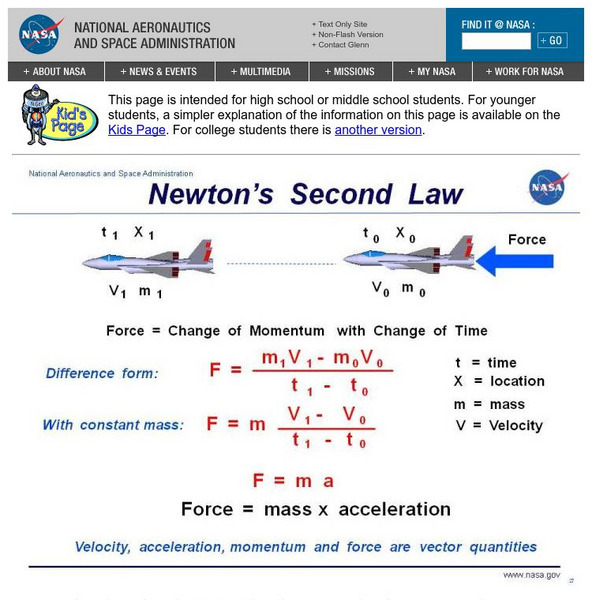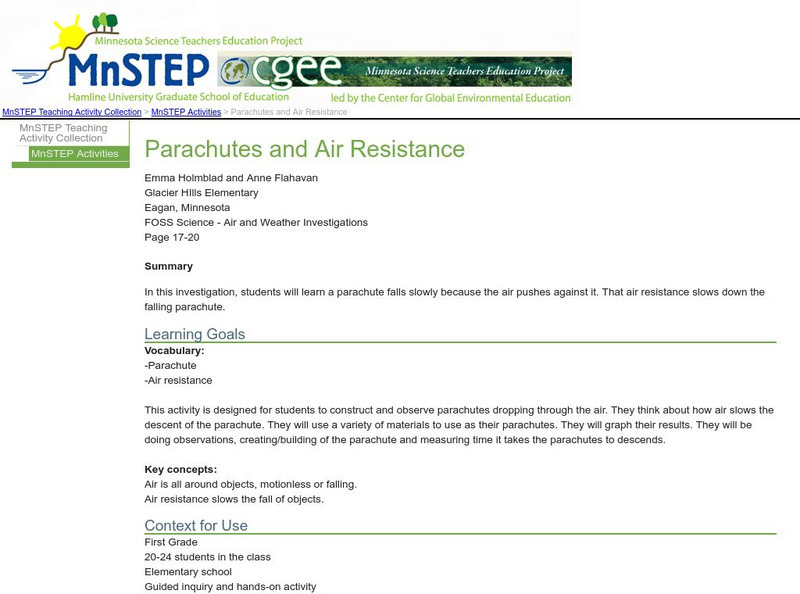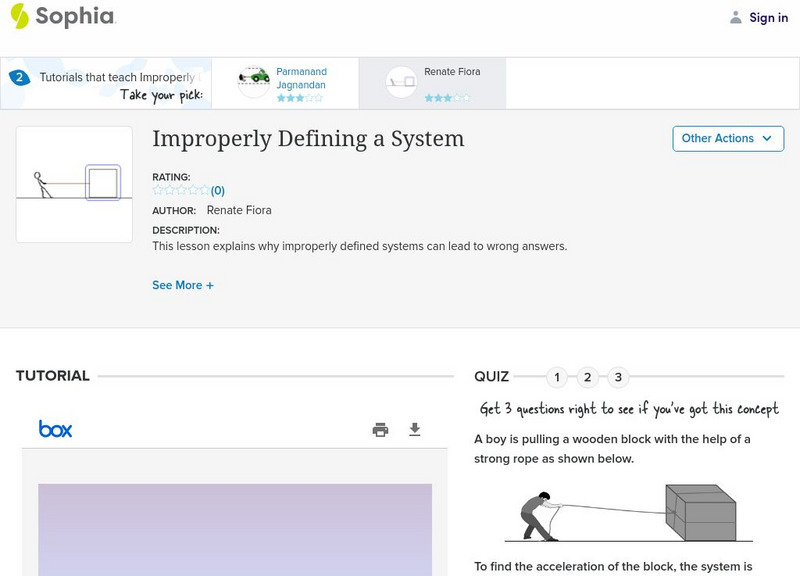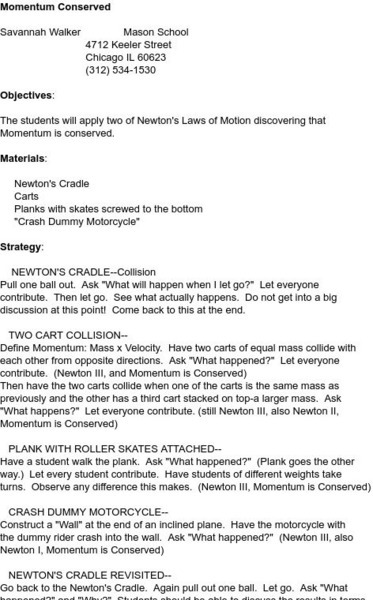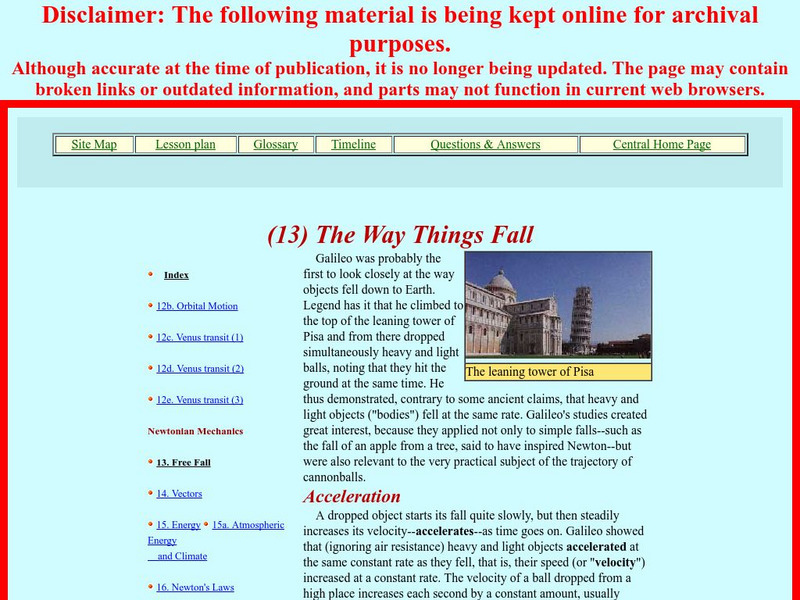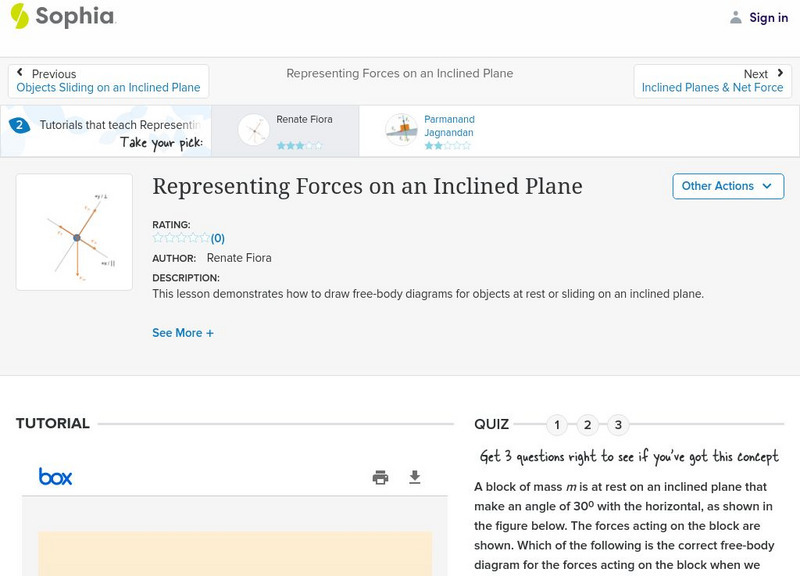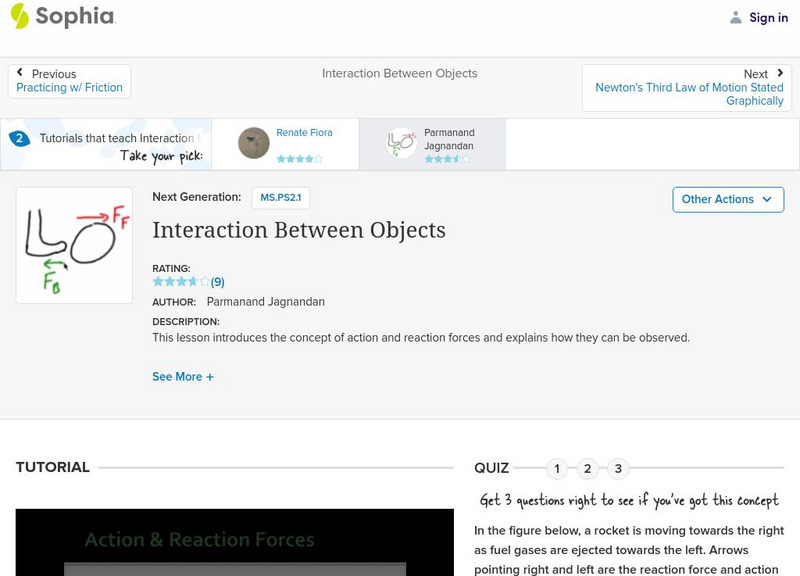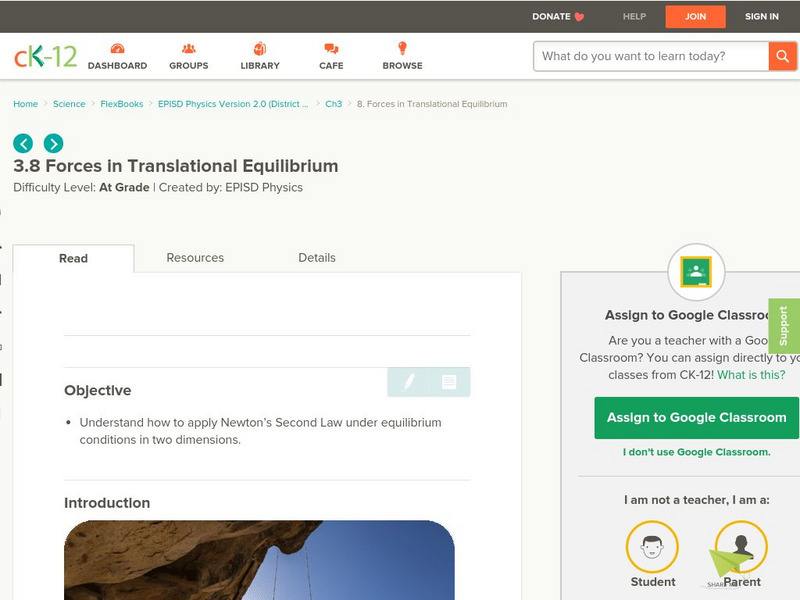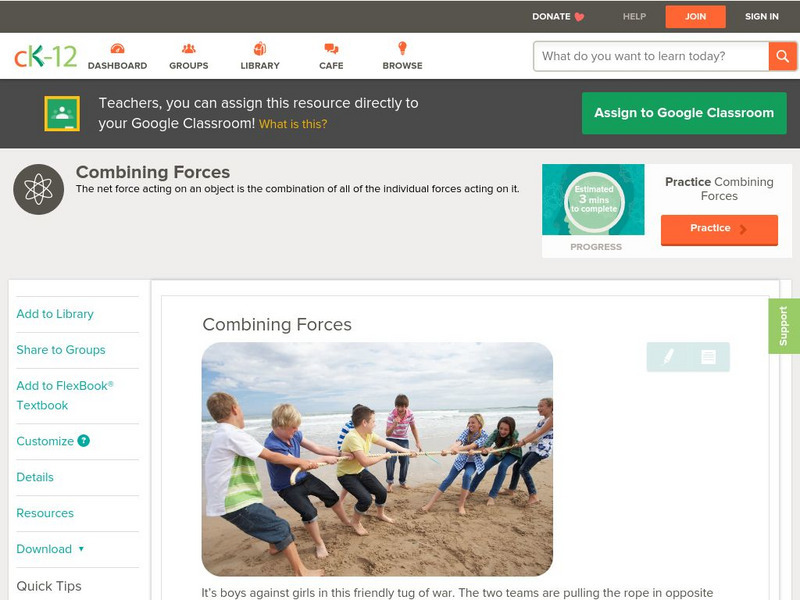Hi, what do you want to do?
NASA
Nasa: Beginner's Guide to Aerodynamics
This site from NASA provides a graphic depicting Newton's second law. Graphic is accompanied by an explanation. Part of a larger site with additional information on Newton's laws.
Science Education Resource Center at Carleton College
Serc: Parachutes and Air Resistance
By using different materials students construct a parachute to show how air resistance slows down its fall in this lesson.
Science Buddies
Science Buddies: Teaching Engineering Design With an Egg Drop
Middle schoolers build a device to protect an egg and prevent it from breaking when dropped.
Walter Fendt
Walter Fendt: Apps Zur Physik
This site, in German, offers numerous apps that illustrate common physics principles. Apps are organized into categories: mechanics, oscillations and waves, electrodynamics, optics, thermodynamics, the theory of relativity, physics of...
Sophia Learning
Sophia: Improperly Defining a System
This presentation explains why a poorly defined system can lead to incorrect answers in physics problems.
Pennsylvania State University
Acoustics and Vibration Animations: Demonstrations: The Simple Pendulum
A series of graphics, downloadable animations and text describe and explain the motion of a pendulum. Some sections require an understanding of calculus.
University of Maryland
Thinking Problems in Oscillations and Waves: Pendulum
A series of thought-intensive, multichoice questions concerning pendulums and provided for by the University of Maryland. A downloadable software program on pendulums is also included.
Science and Mathematics Initiative for Learning Enhancement (SMILE)
Smile: Momentum Conserved
This site by the Illinois Institute of Technology gives a Lab activity in which students use a variety of toys to discover Newton's second law and momentum conservation. Newton's cradle, skate boards, and a toy motorcycle are incoporated...
The Wonder of Science
The Wonder of Science: Ms Ps2 2: Forces, Mass and the Motion of an Object
Cover standards for middle school force, mass, and the motion of an object with this site. Find work samples, phenomena, assessment templates, and videos that directly address standard.
Sophia Learning
Sophia: Introduction to a System: Lesson 2
This lesson introduces the concept a systems and explains why it is important to properly define a system. It is 2 of 2 in the series titled "Introduction to a System."
NASA
Nasa: The Way Things Fall
This site from NASA compares free falling motion to falling with air resistance. Discusses Galileo's experiment. Explains why we believe all objects free fall with the same acceleration.
Physics Central
Physics Central: Physics by the Fire: Match Stick Rocket
Match stick rockets makes a great demonstrations to show students Newton's third law. By covering a match with tin foil, students can see the reaction thrust as the molecules escaping the matchstick are propelled into the air. Lesson...
Cosmo Learning
Cosmo Learning: Momentum & Collisions
Review momentum and collisions with this collection of video lectures from East Los Angeles College. Lectures vary in length and explain the concepts with examples.
Sophia Learning
Sophia: Mass & Acceleration: Lesson 1
This lesson explains why mass and acceleration are inversely proportional. It is 1 of 2 in the series titled "Mass & Acceleration."
Sophia Learning
Sophia: Representing Forces on an Inclined Plane: Lesson 2
This lesson demonstrates how to draw free-body diagrams for objects at rest or sliding on an inclined plane. It is 2 of 2 in the series titled "Representing Forces on an Inclined Plane."
Walter Fendt
Walter Fendt: Projectile Motion
A short interactive activity to show the movement of a projectile. You can change the values of the initial height, velocity, angle of inclination, the mass and the gravitational acceleration.
Science4Fun
Science4 Fun: Force
What is force? Illustrated discussion of how force is calculated and three familiar types.
Sophia Learning
Sophia: Interaction Between Objects: Lesson 1
This lesson introduces the concept of action and reaction forces and explains how they can be observed. It is 1 of 2 in the series titled "Interaction Between Objects."
Sophia Learning
Sophia: Free Body Diagram: Lesson 2
This lesson introduces the concept of the free-body diagram. It is 2 of 2 in the series titled "Free-Body Diagram."
University of Guelph
University of Guelph: Physics Tutorials: Torque and Angular Acceleration
Words and equations are used to explain the relationship between angular acceleration and the torque exerted upon an object. Well-written; great graphics.
CK-12 Foundation
Ck 12: Forces in Translational Equilibrium
[Free Registration/Login may be required to access all resource tools.] The following tutorial helps students to understand how to apply Newton's Second Law under equilibrium conditions in two dimensions.
Physics Aviary
Physics Aviary: Practice Problems: Energy on Incline Level 2
Students must predict the distance a box will move up an incline based on energy conservation. There will be friction present and some of the original KE will turn into heat.
Physics Aviary
Physics Aviary: Practice Problems: Billy on Hill (Level 2)
Students must predict the distance traveled by a person on a sled. The person will start with potential energy due to gravity and then lose some energy on a hill. They will then lose the remaining energy on a level surface. You have to...
CK-12 Foundation
Ck 12: Physical Science: Combining Forces
[Free Registration/Login may be required to access all resource tools.] Featurea the definition of combining forces: Pulling down and pushing up, forces acting in opposite directions, forces acting in the same direction.





